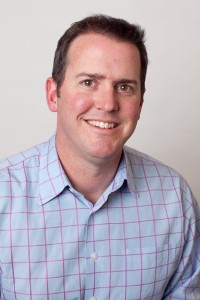On the first Monday of each month Emerging Markets ESG publishes a special interview with an academic, expert or practitioner about a specific topic with relevance to environmental, social and/or governance (ESG) issues.
This month’s interview, the seventh interview in the special interview series, is about impact investing and is with Kevin Kelly, Founder and CEO of Application Experts (App-X), Broomfield, Colorado, United States of America.
Application Experts (App-X), a Broomfield, Colorado provider of web-based solutions AIM and PULSE for the alternative asset industry, believes in profits with a purpose. Since 2006, App-X’s tech-and investment-savvy team has positioned the company as a trusted advisor delivering flexible software built on the Salesforce platform, resulting in over 80 clients and over 1,000 individual users of AIM and PULSE. App-X isn’t defined by profit. In fact, it achieved B Corp status in 2011 for its work improving lives around the world. How? – By providing to non-profits for free its PULSE software for measuring social, environmental and financial impact. Think: Seats opened at inner-city charter schools and water systems built in India. Such standardized metrics are the proof that’s been missing from the impact-investment pudding. PULSE, winner of a Fast Company Social Capitalist Award, makes metrics easy to track for organizations on six continents, including Acumen Fund and W.K. Kellogg Foundation. Kevin Kelly is founder and CEO of App-X. Kevin Kelly founded App-X in 2006. As CEO, he brings a unique mix of technical acumen, business development skills, creativity and energy to the company. He is responsible for leading App-X’s sales efforts and developing strategic partnerships. Kevin has served in a Chief Technology Officer (CTO) advisory role to a Chicago-based Buyout Fund of Funds with nearly $1B under management. He also has worked in various technical sales, business development and management roles in small startups and leading technology firms such as Cisco Systems and NEC Unified Solutions. He is actively involved in Colorado’s entrepreneurial communities. In his free time, Kevin enjoys hiking, skiing and fishing the Rocky Mountains with his wife and three young children as well as playing and coaching ice hockey.
Emerging Markets ESG: How would you define impact investing?
 Kevin Kelly: Impact investing is a relatively new field that blends the strategy of for-profit investments with the strategy of philanthropy. Essentially, impact investing is investing for the sake of profit as well as for social and environmental impact.
Kevin Kelly: Impact investing is a relatively new field that blends the strategy of for-profit investments with the strategy of philanthropy. Essentially, impact investing is investing for the sake of profit as well as for social and environmental impact.
Emerging Markets ESG: What distinguishes impact investing from mainstream investing?
Kevin Kelly: Impact investors consider a triple bottom line. In other words, where traditional investing models measure success purely by profit, impact investing seeks to make social and environmental impact as well.
Emerging Markets ESG: What differentiates impact investing from socially responsible investment (SRI)?
Kevin Kelly: Technically I think impact investing is part of SRI. While both forms of investing seek to positively and proactively do good while earning a return on their investment, SRI also focuses on avoiding investing in industries that cause harm, such as the alcohol, tobacco, or firearms industries.
Emerging Markets ESG: Where do emerging markets figure in the impact investing arena?
Kevin Kelly: Impact investments are often made in emerging markets because there is such a big opportunity in those markets for impact investments to do good. The consensus among impact investors is that aid in the form of gifts and pure philanthropy is not as effective in and of itself in solving emerging market social challenges such as hunger, poverty and sanitation as a market-driven approach.
Emerging Markets ESG: Could you briefly describe an impact investment in an emerging market that clearly demonstrates both the ethos and the practice of impact investing?
Kevin Kelly: Our clients typically manage a portfolio of impact investments. For example, Acumen Fund, one of the pioneers in impact investing, has proven that the model of investing in promising entrepreneurs is an effective way to tackle problems of poverty in the developing world in a sustainable way. Acumen Fund has over $73 million dollars of investments in 65 social enterprises and continues to expand their portfolio and their reach. Their success is evident when an entrepreneur creates a viable business that addresses a social need. Once an entrepreneur repays the initial investment, Acumen reinvests the capital in another entrepreneur.